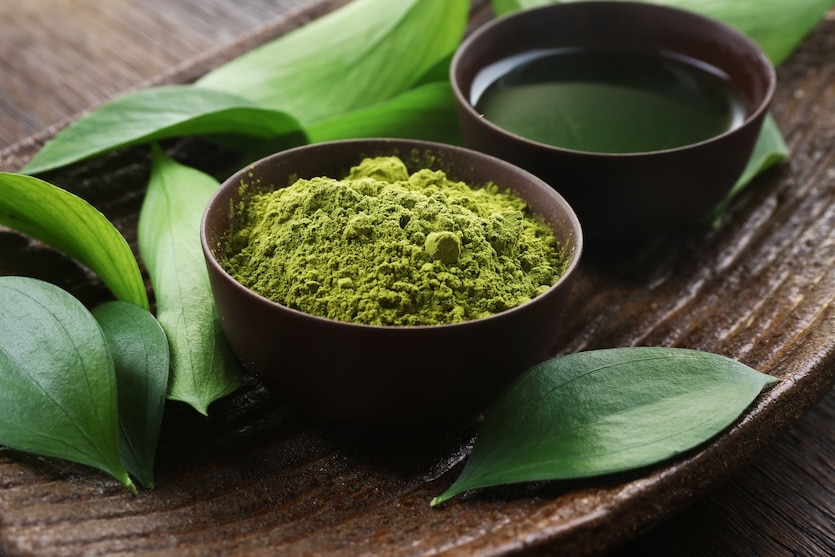
Green tea is one of the most popular beverages in the world. It has been a staple drink in China for thousands of years, where the practice of steeping tea leaves originated. From there it spread to other east Asian countries and eventually, Europe. Green tea has several health benefits and has been consumed both medicinally and for pleasure throughout history.
Green tea comes in a variety of forms, from tea leaves to matcha powder, but this article will focus on one form in particular: green tea extract.
Products ranging everywhere from energy drinks to dietary supplements include green tea extract as an ingredient. And, as a consumer, you might be wondering why. Read on for a detailed breakdown of what green tea extract is, its health benefits, and more.
What is Green Tea Extract?
Traditionally, green tea is prepared by steeping dried tea leaves in hot water. The leaves are then strained out using a tea bag or colander and the remaining liquid—the tea—is consumed. Green tea extract comes from those same dried tea leaves but is created using a different process.
To produce green tea extract, tea leaves are first dried, and bathed in solvents to extract the active compounds. Then the extract is purified to remove the solvent and any impurities. Finally, the pure extract is dried and powderized. This extract contains the same active ingredients as traditionally prepared green tea, but in a far more concentrated form. Green tea extract is often sold as a powder, liquid, or inside tablets and capsules—and in terms of active ingredients, one capsule is equal to one full glass of tea.
In short, green tea extract is a concentrated form of green tea that contains many of the same active ingredients as a glass of green tea. So, what’s the big deal? Let’s take a look at what those active ingredients are and what they mean for your health.
What’s in Green Tea Extract: Active Ingredients and Constituents
The health benefits of green tea—and, by extension, green tea extract—come from polyphenols. These chemical compounds, which are found in a variety of plants, are powerful antioxidants (substances that help protect the body from toxins). Green tea is known to contain several different polyphenols, the most most important nutritionally is epigallocatechin gallate (EGCG).
In addition to these polyphenols, green tea extract contains another type of organic compound: alkaloids. These include caffeine, theophylline, and theobromine.
Green tea also contains an amino acid known as L-theanine, which has been the subject of recent studies for its impact on brain chemicals that support alertness, relaxation, focus, and more.
Health Benefits of Green Tea Extract
Green tea has played a role in Traditional Chinese Medicine for centuries. During the Ming Dynasty, for example, one Chinese writer described green tea’s role in supporting various aspects of health.
Thanks to more recent studies, we have even more information on the health benefits green tea extract can provide.
As mentioned earlier, green tea is rich in antioxidants. EGCG in particular, has been shown to support the body’s elimination of toxins and reduce oxidative stress. Adequate levels of antioxidants in the body promote health on a cellular level.
In some studies, green tea extract was shown to support the body’s normal fat oxidation processes, both at rest and during exercise. Fat oxidation is the process through which the body breaks fats down into substances that can then be used for energy within the body. Basically, it’s the body’s process of burning fat. Though more research is required to fully understand the way green tea extract supports fat oxidation, current studies suggest that green tea may help support a healthy body weight.
The Bottom Line
If you’re looking to improve your health on a cellular level, lose weight, or improve your short-term focus, green tea extract might be just the supplement for you. The medicinal properties of green tea have been known and used for centuries—and we’re only uncovering more as research continues.
References
